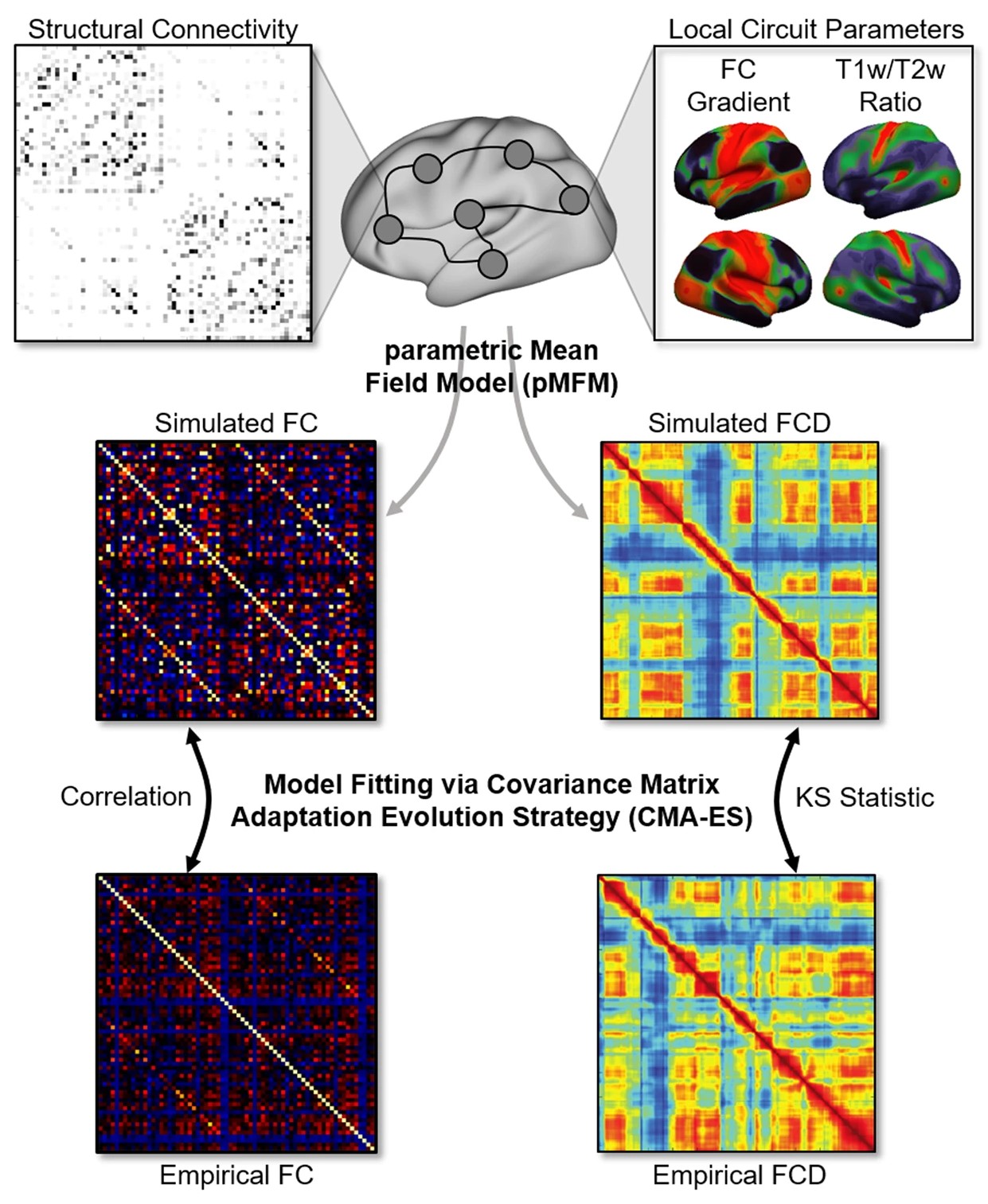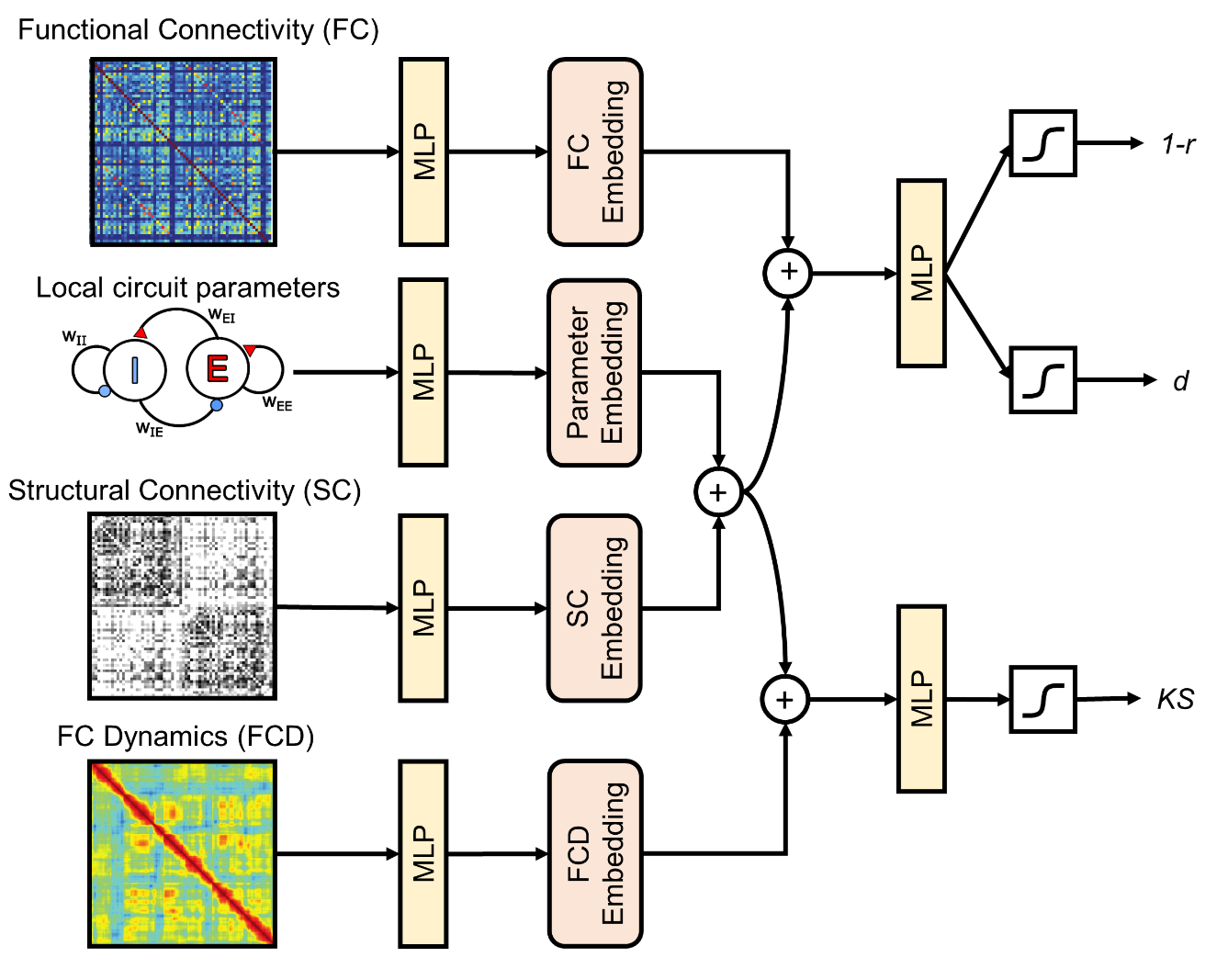MFM Speedup
Use machine learning to accelerate a computational model (MFM) of human brains
This was a research internship project at Prof. B.T. Thomas Yeo’s lab at the National University of Singapore. The goal of this project is to leverage machine learning and deep learning to accelerate the parameter optimization process for the mean-field model(MFM), or more precisely parametric MFM (pMFM).
The pMFM is a computational model of human brains that simulates brain activities through an ordinary differential equation (ODE) system to produce realistic functional MRI (fMRI) signals. The model is used to study the dynamics of brain activity and to understand how different brain regions communicate with each other.

The original pMFM’s parameter optimization process utilizes Euler integration to numerically solve the ODE system, which can be computationally expensive to run. Therefore, I aim to speed up the parameter optimization process by using machine learning techniques to predict the MFM parameters’ performances without the need to solve ODEs. Specifically, I performed the following tasks:
- Generated a synthetic dataset of pMFM parameters and their corresponding performance.
- Validated two assumptions.
- Explored different machine learning models to predict the pMFM parameters’ performances.
- Explored various optimization techniques such as Covariance matrix adaptation evolution strategy (CMA-ES) and Gradient Descent.
In the end, I have demonstrated the feasibility of using machine learning to accelerate the pMFM parameter optimization process, achieving a speedup of 5,000x compared to the original Euler integration method. This project has led to a paper (Zeng* et al., 2024) that we are currently preparing for submission to Nature Methods. For more details of this project, please visit the GitHub repository.
